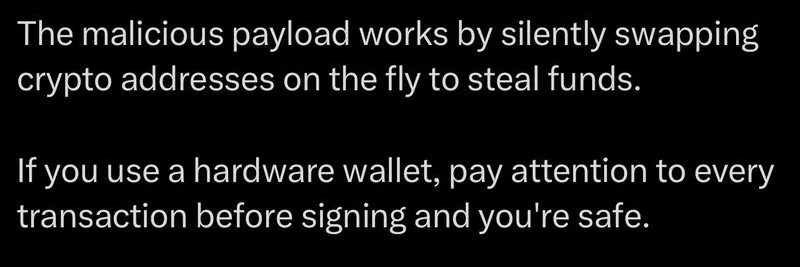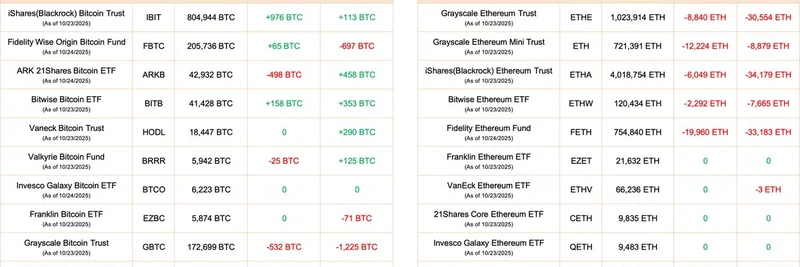The crypto world got a major wake-up call yesterday when SolanaFloor, a leading news source for all things Solana, shared a chilling alert about a massive supply chain attack hitting the NPM ecosystem. If you're deep into meme tokens—especially those buzzing on Solana—this is something you can't ignore. Let's break it down step by step, keeping things straightforward so you can grasp the risks and protect your bags.
What Happened? The Tweet That Shook the Community
On September 8, 2025, SolanaFloor posted an urgent update citing Ledger's CTO, Charles Guillemet (@P3b7_ on X), warning about a large-scale attack on NPM, the package manager for JavaScript. NPM is like the backbone of countless web apps and tools, including many crypto wallets and decentralized applications (dApps) we use daily. The attack involves hackers compromising reputable developer accounts and injecting malicious code into popular packages that have been downloaded over a billion times collectively.
Here's the screenshot from the original alert shared by SolanaFloor:
In essence, the malicious payload sneaks in and swaps out crypto addresses on the fly. Imagine you're about to send some SOL to snag the next hot meme token, but the address gets quietly changed to the hacker's—boom, your funds are gone. This isn't some small-time scam; it's a sophisticated supply chain attack, where bad actors target the software supply process itself rather than individual users.
For more technical depth, check out the excellent report referenced in the tweet: We Just Found a Massive Web Supply Chain Attack. Additional coverage from reliable sources like CoinDesk highlights how this could be one of the largest compromises in NPM history (Ledger CTO Warns of NPM Supply-Chain Attack Hitting 1B Downloads).
How the Attack Works: A Quick Explainer
Supply chain attacks are sneaky because they exploit trust. In this case, the npm account of a well-known maintainer named Qix- was compromised via a phishing email. This gave hackers access to publish tainted versions of core packages like 'debug' and 'chalk'—tools used in everything from command-line interfaces to web frontends.
The malware doesn't scream "I'm evil!" Instead, it quietly monitors for crypto-related activities. When it spots a wallet address (like those for 比特币, 以太坊, or Solana), it replaces it with a lookalike one controlled by the attackers. These swaps use string-matching to make the fake addresses seem legit at a glance, tricking users into confirming transactions that drain their wallets.
Why does this matter for JavaScript? JS powers a ton of blockchain interfaces, including browser extensions like Phantom or MetaMask, which many meme token traders rely on for quick swaps on platforms like Jupiter or Raydium. If a dApp or wallet site pulls in a compromised package during development or runtime, it could expose users without them knowing.
Reports from security firms like Aikido Security (npm debug and chalk packages compromised) and Socket.dev (npm Author Qix Compromised via Phishing Email in Major Supply Chain Attack) confirm the scale: billions of weekly downloads mean the entire JS ecosystem is at risk, and by extension, the crypto space.
Implications for Meme Token Traders
Meme tokens thrive on hype, fast trades, and community-driven launches, often on chains like Solana where speed is king. But this attack hits right where it hurts—web-based tools. If you're sniping new memes via Pump.fun or trading on decentralized exchanges (DEXs), you're likely using JavaScript-heavy interfaces that could be vulnerable.
Solana-Specific Risks: Solana has exploded with meme tokens in 2025, from cat-themed coins to AI-inspired pumps. Many traders use software wallets integrated with browsers, which might inadvertently load compromised libraries. SolanaFloor's post underscores this, as the alert is "potentially across all chains," but Solana's ecosystem is particularly web-centric.
Broader Crypto Impact: This isn't just a Solana issue. Ethereum-based memes, Base chain experiments, or even cross-chain bridges could be affected if their frontends rely on NPM packages. Past incidents, like the Atomic and Exodus wallet targeting via npm (Atomic and Exodus crypto wallets targeted in malicious npm campaign), show how these attacks evolve to steal crypto directly.
The good news? It's still unclear if the attackers are stealing seed phrases from software wallets yet, but the address-swapping alone is dangerous enough. As Brave New Coin puts it, this is a wake-up call for all crypto users (ALERT - The NPM Hack Is a Wake-Up Call for Crypto Users).
How to Stay Safe: Practical Tips
Don't panic, but do act smart. Here's what you can do right now:
Switch to Hardware Wallets: If you have one (like a Ledger or Trezor), use it. These devices let you verify transactions on the hardware screen, so even if your computer's software is compromised, you'll spot any address swaps before signing. Guillemet's advice is spot-on: Pay attention to every transaction.
Pause On-Chain Activity: If you're using a software wallet without hardware backup, hold off on trades until more clarity emerges. Touch grass, as one reply to the tweet suggested—sometimes the best move is no move.
Update and Verify: Check for updates to your wallets and dApps. Developers are scrambling to yank compromised packages, so stay on top of patches. Tools like npm audit can help devs scan for vulnerabilities.
Double-Check Addresses: Always paste addresses into a verifier or compare them character-by-character. Avoid copying from potentially tainted sources.
Diversify Security: Use multi-factor authentication everywhere, enable wallet approvals, and consider air-gapped setups for high-value holdings.
For meme token enthusiasts, this is a reminder that while the fun is in the memes, security is what keeps your portfolio from becoming one. Keep an eye on updates from sources like The Block (Ledger CTO warns users to halt onchain transactions amid massive NPM supply chain attack) and Reddit discussions (Largest NPM Compromise in History - Supply Chain Attack) for the latest.
Stay vigilant, traders—the crypto game is wild, but with the right precautions, you can ride the waves safely. If you've got thoughts or experiences with this, drop them in the comments below!



